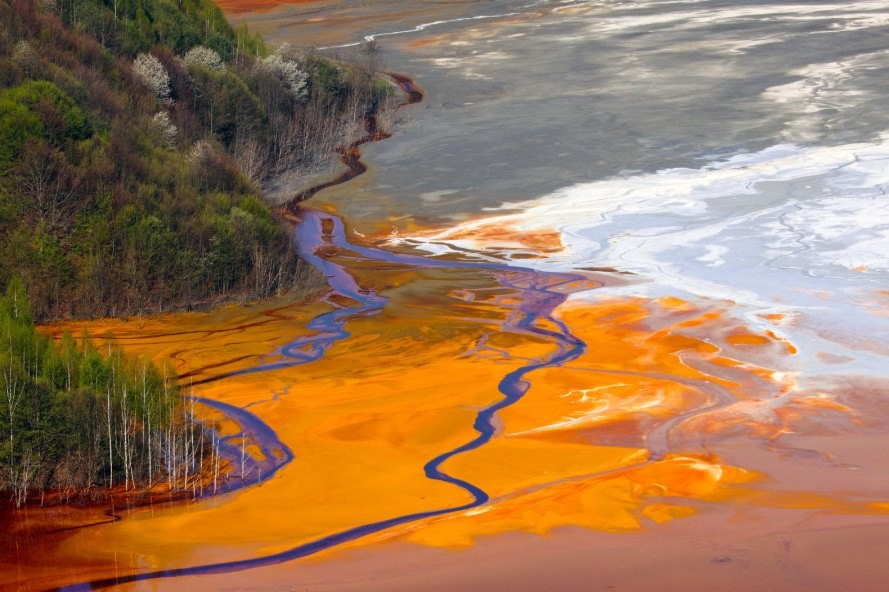Mountaintop-removal mining affects communities for miles around.
In Appalachia, the practice of mountaintop-removal mining has damaged thousands of miles of streams and millions of acres of forests. This destructive practice has serious health consequences for nearby communities, as well.

In Appalachia, mining companies literally blow the tops off mountains to reach thin seams of coal. They then dump millions of tons of rubble into the streams and valleys below the mining sites. Toxic heavy metals such as cadmium, selenium, and arsenic leach into local water supplies, poisoning drinking water.
This destructive practice, known as mountaintop-removal mining, sends carcinogenic toxins like silica into the air, affecting communities for miles around. Cancer rates are twice as high for people who live near mountaintop-removal sites, and the risk of heart defects in babies born to mothers who lived near these sites while pregnant is 181 percent higher than for babies in non-mining areas. It also destroys beautiful, biodiverse forests and wildlife habitat, increases the risk of flooding, and wipes out entire communities.
This practice has damaged or destroyed more than 2,000 miles of streams, and has wiped out more than 1.5 million acres of forests in Kentucky, Tennessee, Virginia, and West Virginia.